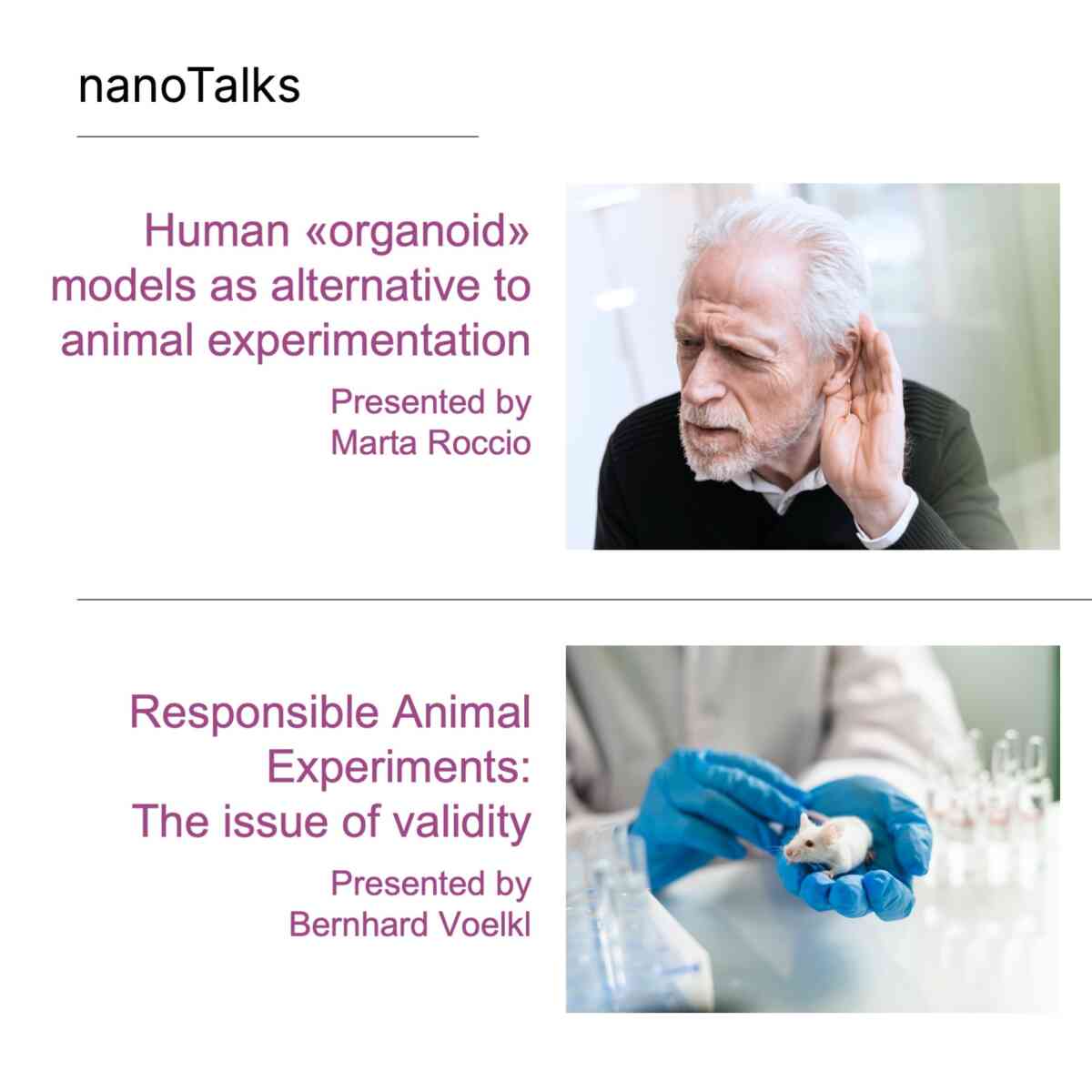OPEN YOUTUBE
Talk 1: Human «organoids» models as alternative to animal experimentation
Presented by Marta Roccio, PI Inner Ear Stem Cell Lab, University of Zurich
In vitro models of human organs, so-called «organoids», represent a novel tool for biomedical research to understand organ development, disease, and develop novel therapies. Organoids can replace some animal experiments and in specific instances have proven superior to animal models to predict drug-responses or study disease mechanisms. This talk will discuss a few examples and present some of the work the lab is doing on inner ear organoids as a tool to target hearing loss.
Talk 2: Responsible animal experiments – the issue of validity
Presented by Dr. Bernhard Voelkl, Animal Welfare Division, Veterinary Public Health Institute, University of Bern
Research involving animals constitutes an ethical dilemma, as the wellbeing of animals is protected by law, while, at the same time, freedom of research is also guaranteed by law. In order to reconcile these opposing interests, researchers are requested to perform a harm-benefit analysis, weighing the expected harm to animals against the expected benefit to society. On the side of the harm, a severity rating allows a basic categorisation of procedures and researchers are required observing the 3Rs principle. Regarding the benefits, the regulations are much more vague; however recently guiding principles for evaluating whether researchers have taken measures to maximise benefits have been proposed: the 3Vs principle. This talk will argue that only in combination, the 3Vs and 3Rs principles allow the conduct of a harm-benefit analysis and an evaluation to decide about the adequacy of experiments involving animals.


